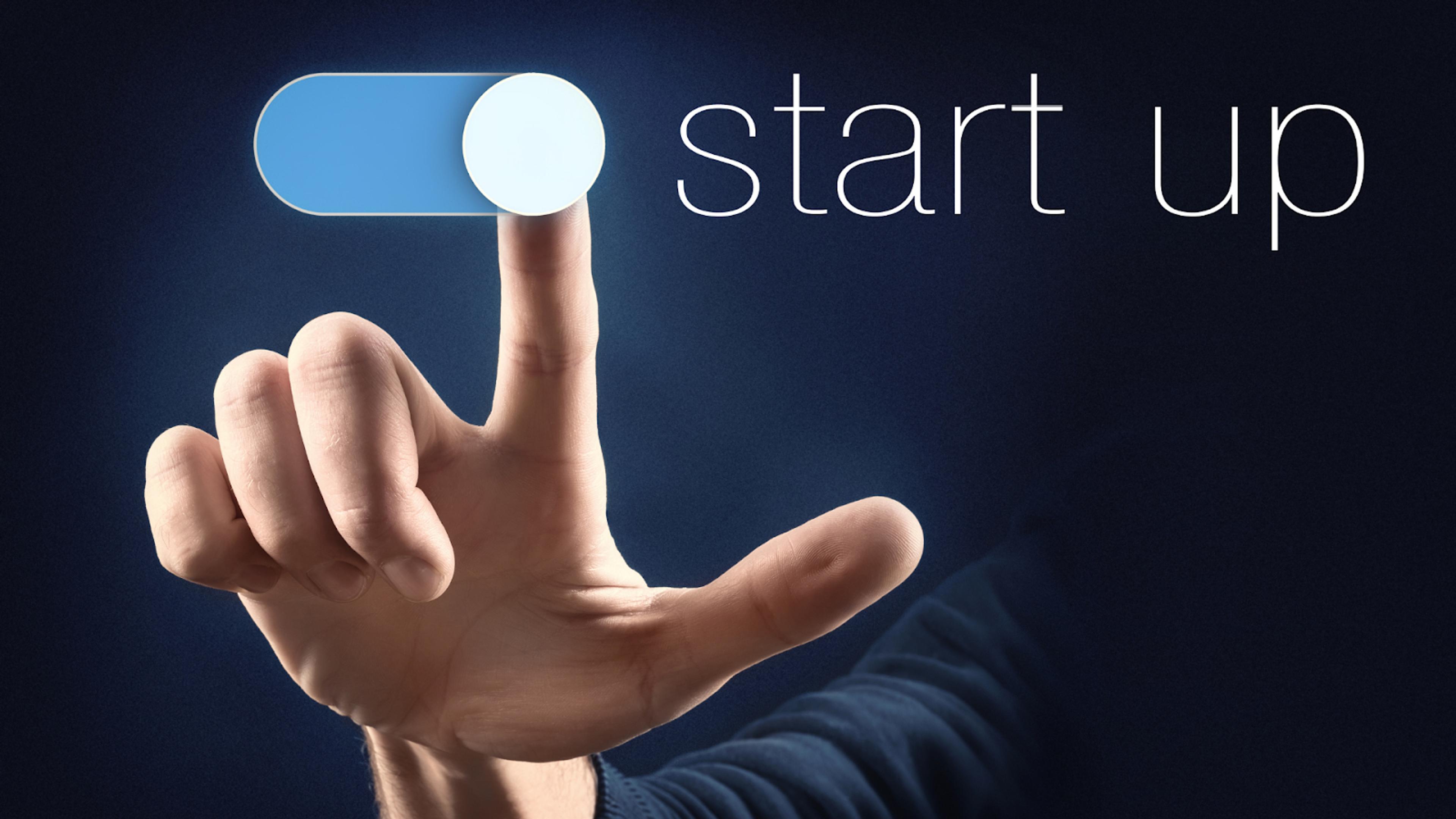YC Acceptance Rate: How Hard Is It to Get In?
Learn what the YC acceptance rate really means and how to dramatically improve your odds with traction, clarity, and a fundable founding team.
Posted November 7, 2025

Join a free event
Learn from top coaches and industry experts in live, interactive sessions you can join for free.
Table of Contents
The accelerator known simply as “YC” remains one of the most sought‑after paths in the startup world. For many startup founders looking to transform a “just an idea” into a high‑growth company, getting into YC is a milestone, not the only path, but a powerful one. With thousands of applicants chasing fewer than a few hundred slots per batch, the competition is fierce, and the standards are high. But that doesn’t mean it’s impossible. What matters is building the right kind of company, telling the right story, and executing with purpose.
In this article, you’ll get a realistic breakdown of the YC acceptance rate and what that number really means, a step‑by‑step guide through the YC application and interview process, tactical advice from real founders, including those who got rejected or applied multiple times (and learned), a checklist of “dos & don’ts” that many successful YC companies use, astrategic mindset shift: from fixating on odds to maximizing what you control
What is YC (and Why Should You Care?)
Y Combinator is a startup incubator and accelerator based in San Francisco that invests seed capital (historically ~$125K+ SAFE) in early‑stage teams, in exchange for ~7% equity, then guides them through a 3‑month program culminating in Demo Day. The batch model, the network of alumni, and the brand value of “YC company” all combine to make it a launchpad for companies that want to scale rapidly. If you’re forming a startup and aiming to build a “very large company” in a big market, YC is often the accelerator people cite.
But: more than anything else, YC invests in the founding team, the market opportunity, the early traction, and a clear articulation of how you will build something meaningful. It’s not just about an idea, or being in Silicon Valley; it’s about capability, momentum, and clarity. In this sense, the advice here applies to many good accelerator or seed‑funding opportunities, not just YC.
Read: Y Combinator: What it Is, How it Works, & How to Get In
The Reality Behind YC’s Acceptance Rate
Y Combinator’s acceptance rate is famously low, but not always well understood. Most sources estimate it sits somewhere between 1.5% and 2%, depending on the batch. In concrete terms, that might mean 24,000+ applications for ~280 spots, which brings the real figure closer to 1.17%. But here’s the truth most founders miss: your odds aren’t uniformly “1 in 100.” That number makes for a great headline, but it hides the nuance, and, frankly, the opportunity.
The acceptance rate doesn’t function like a lottery. It’s not a flat distribution where every company has an equal shot. In reality, your personal odds depend on how closely you match what YC is looking for: a high-agency founding team, real traction or insight into a big market, and a story that’s both clear and compelling. If you meet those benchmarks, or better yet, exceed them, your actual odds can be dramatically higher.
Why Founders Shouldn’t Fixate on the 1%
Here’s why using the raw acceptance rate as your North Star is misleading and potentially harmful.
First, not all applicants are created equal. Thousands of startups apply with no product, no users, and no co-founders. In that sense, the true denominator (the pool of "ready" startups) is much smaller. YC even states that many applications are filtered out early due to being incomplete, unclear, or lacking traction. So if you're applying with a well-built team, actual usage data, and a defined market, you're already ahead of a massive portion of the pack.
Second, relying on the acceptance rate can lead to what experienced founders call a “lottery mindset”: the belief that getting into YC is random or luck-based. That’s not just inaccurate but also counterproductive. It leads founders to overemphasize polish and pitch, and underemphasize product and progress. As one founder shared in a popular Reddit thread:
“The chances aren’t equal for everybody… If your company checks enough of these boxes, your odds of getting into YC are much better than 1 in 100.”
Instead of obsessing over the acceptance rate, focus on increasing your own odds by strengthening the things that actually matter: your team, traction, clarity, and execution. YC isn’t just selecting the best applications; they’re selecting the most promising companies.
What YC Partners Are Actually Looking For
Understanding what YC partners prioritize gives you an edge that few founders use well. These aren’t mystery criteria hidden behind a black box. They’re patterns, publicly shared by partners like Paul Graham and Michael Seibel, reinforced by hundreds of interviews and funded founder experiences. And they reveal exactly what separates a fundable startup from a forgettable one.
A Proven, Committed Founding Team
Above all else, YC backs people. Not resumes. Not credentials. People who can build. A strong co-founding team, especially one that combines technical and operational strengths, is one of the clearest indicators of execution potential. Founders who’ve worked together before, shipped products, or operated in the same domain have a distinct edge. Solo founders aren’t disqualified, but they’re often viewed as higher risk. If something happens, such as burnout, illness, churn, who’s left to carry the load?
YC partners want to see signs of resilience, clarity of roles, and long-term commitment. If you’re still testing whether this is the right team or the right time, you’re not ready. If you’ve already started building together, you're well ahead.
Deep Domain Expertise and a Real Problem
Ideas are easy. Domain knowledge is earned. YC looks for founders who understand their space with depth and urgency, because they’ve lived the problem, worked in the industry, or already talked to users. If your company is rooted in real pain points, not speculative trends, that signals credibility. It's even better if you can show early customer feedback or traction, proving you’re not building in a vacuum.
But expertise alone isn’t enough; you also need scale. YC wants startups solving problems big enough to become very large companies. If you can clearly show why this market is massive, why you have a right to win, and how you’ll get there faster than others, you become investable.
Extreme Clarity and Relentless Focus
You can’t fake clarity. If you can’t explain what you do in one sentence, YC partners will move on. Applications that rely on jargon or hand-wavy descriptions of “disrupting” or “transforming” usually get filtered early. Instead, YC looks for sharp, distilled explanations that demonstrate the founders truly understand what they’re building and who they’re building it for.
Focus is the other piece. YC doesn’t expect you to solve everything at once, but they do expect you to pick the most important thing and execute like hell. If your Y Combinator application feels scattered across multiple ideas, user personas, or revenue models, it raises red flags. Speed of learning, iteration, and product development are your currencies in early-stage execution.
A Moat or Proprietary Edge
YC doesn’t expect every startup to have a patent or PhD-level IP. But they’re not looking to fund the tenth copy of a generic product either. They want to see what makes your company defensible. That could be proprietary technology, data advantages, operational know-how, or early traction in a hard-to-enter niche. What they don’t want are “weak examples”, startups that could easily be replicated by someone with more capital and a better go-to-market engine.
Even if your moat is still developing, being able to articulate what will make your business sticky, efficient, or self-reinforcing over time shows long-term thinking.
Early Traction and a Path to Revenue
The earlier you can prove people want what you’re building, the more compelling you become. Traction doesn’t have to mean six-figure revenue, but it does mean usage, retention, conversions, or waitlist demand. Real engagement shows you’ve found something worth building.
YC wants to back founders who have figured out at least one part of product-market fit. If you can show signs that people love your product, and are willing to pay, return, or refer. It signals that you're not just guessing. You’re solving something real. Even if you're pre-revenue, you need to have a clear sense of how this becomes a viable business.
Compelling Storytelling and Communication
YC partners read thousands of applications. The ones that stand out do more than describe a product; they tell a story that’s impossible to ignore. Your ability to communicate why this problem matters, why your team is uniquely positioned to solve it, and why now is the moment, this is the heart of persuasion. It’s where domain knowledge meets narrative clarity.
In fact, one of the most common reasons good startups get rejected is that their applications simply fail to explain the founders well enough. YC doesn’t assume. If you don’t demonstrate deep understanding of your users, your market, and your own product, they won’t fill in the blanks for you. Answering “Why us?” and “Why now?” isn’t optional; it’s essential.
The Interview: Fast, Direct, and High Stakes
If you’re invited to the interview stage, you’ve already made it past the hardest filter. But now the real scrutiny begins. YC interviews are short, sometimes just 10 minutes, but laser-focused. The partners want to know: Do you really understand your market? Can you back up your claims? Are you coachable, adaptable, and clear under pressure?
The most successful founders prepare relentlessly. They run mock interviews. They refine their metrics. They practice explaining their idea in simple, sharp terms. If you fumble through core questions (how you’ll grow, how you’ll make money, how big this can get), it’s hard to recover. But if you show up sharp, grounded, and ready to learn, you give them every reason to say yes.
The YC Application Process: Step‑by‑Step
Here is a tactical breakdown of the typical journey from application to acceptance, with real‑world insights and what you should prepare.
| Step | What happens | Your tactical move |
|---|---|---|
| Pre‑Application | You fill out an online application; there is usually an “idea” submission or “company” submission, depending on your stage. | Make sure you really have a founding team, a short, clear description (“what you do”), and some form of traction or validation if possible. |
| Written Application | You answer questions about your team, problem, solution, traction, market, why now, and why you. | Write concisely, avoid marketing speak, replace vague terms with concrete evidence (“we have 100 monthly active users”, “we grew 20% month‑on‑month”). |
| Shortlist + Interview Invite | If your written application passes, you get invited to an interview with YC partners (via video). | Prepare heavily: have your pitch ready, refine metrics, practice answers, anticipate sharp questions about growth, business model, and team. |
| Interview | 10 – 20 minutes, direct questions. The decision is often made the same day. | Be authentic, confident, and clear. Show you understand your business, can iterate, and that you’re all‑in. |
| Acceptance & Batch Kickoff | If accepted, you join the cohort in San Francisco (or remote, depending on batch) and engage in the program culminating in Demo Day. | Be ready to move fast, engage with the network, learn, iterate on your product, and raise follow‑on capital. |
Read: YC Application Guide: Process, Questions, & Deadlines
If you’d like help refining your application, from the “what we do” statement to traction metrics, to interview prep — book a coaching session now to map your next steps and polish your submission.
Real‑Founder Insights: What You’ll Probably Hear
From Reddit, Quora, and YC alumni threads, here are some practical lessons many founders share (and many miss).
- One founder who applied 100 times said the big shift was when they stopped trying to treat the application like a lottery and instead treated it like a product pitch for YC alone, improving the “pitch” weekly.
- Many reports emphasize that the difference between a “good” application and a “great” one is clear articulation and evidence, not just “nice idea.”
- A Quora thread pointed out: “How difficult is it to get selected for Y Combinator?” Many responses highlight the role of founders who build something vs. purely “idea stage” applicants.
- Many “weak example” startups (small ambitions, vague market, no traction) don’t progress, session after session. To quote one: “If your company doesn’t have many of these characteristics… your odds are actually close to non‑existent.”
- A common tip: have customer stories, even if very early. Shows real user pain.
- Another: domain knowledge counts. If you’re a founder who has worked in that space, you will stand out.
- If you were rejected previously (previous application), use the feedback, iterate, show progress, then re‑apply; that can be a strength rather than a weakness.
Checklist: Building Your Strong Application
Here’s a tactical checklist for you and your fellow founders to use as you prepare.
- Team - co‑founders established, roles clear, commitment high
- Idea - solves a specific pain point you understand, early customer sign‑ups or usage
- Market - large total addressable market, big market potential, path to “very large company”
- Technology/Moat - either proprietary technology or a clear competitive advantage
- Traction - early users/customers, growth metrics, validating feedback
- Story - Clear, short “what we do” statement, free of marketing speak, measurable language
- Application writing - avoid fluff, quantify everything, show real problem + real solution
- Interview prep - prepare numbers, rehearse articulating team + market + progress
- Post‑rejection plan: if rejected, map out progress milestones, update brand-new application
- International founders - note: you can apply from anywhere (YC globally open)
- Video introduction (if required) - founders speaking, bullet notes only (no script)
Avoidable Mistakes That Kill Otherwise Good Applications
The most common YC mistakes don’t come from bad ideas; they come from misaligned mindsets and avoidable oversights. Founders often fixate on the acceptance rate (“It’s only 1%, so why bother?”), which creates a defeatist, lottery-style approach instead of focusing on how to actually improve their odds.
Others submit applications that lack clarity, real traction, or even a clearly defined problem, leaning on vague buzzwords like “disrupt” instead of sharing specific proof points like active users, revenue, or month-over-month growth.
Solo founders can and do get in, but applying without a demonstrated ability to execute or a track record of resilience raises red flags. One of the biggest misses? Treating a rejection as a dead end rather than an invitation to iterate. Reapplying with the exact same pitch (and no progress) shows a lack of learning, which YC heavily screens for.
Many founders also fail to rehearse for the interview or refine their answers to foundational questions like “Why now?” and “Why you?”, two things every partner cares deeply about. And while YC does back international founders, ignoring the practical challenges of timezone coordination, relocation, or program participation can subtly hurt your chances.
Every one of these mistakes is fixable, but only if you take the process seriously and treat YC not as a Hail Mary, but as a partner evaluating whether you're ready to build a real, scalable company.
Is Getting Into YC the Only Path to Success?
No, there are many successful startup journeys that never go through YC. But for many founders, YC provides signal, network, follow‑on capital access, and a rigorous environment of peers and mentors. If your ambition is to build a startup that becomes a large company, to join the ranks of many successful YC companies, then it’s worth treating YC as a serious option.
But important mindset: the goal should not be “get into YC” for its own sake — the goal should be “build a company YC would accept**. That shift in framing moves you from chasing a badge to executing a plan.
Read: The 10 Best Y Combinator Alternatives
Final Word: How to Dramatically Improve Your Odds
Don’t fixate on the 1%. Focus on what’s in your control. Build real traction before you apply. Refine your “what we do” statement until it’s crisp and clear. Show deep understanding of your market and why you’re uniquely positioned to win. Make sure your founding team is strong, committed, and complementary.
Treat the application like a pitch deck: specific, sharp, and compelling. If you’ve applied before, iterate. Show progress. Prepare for the interview like it matters because it does. Founders who get in aren’t lucky, they’re ready.
Need help getting ready? Book a top startup coach to sharpen your story, strengthen your pitch, and dramatically improve your chances of getting into YC. Also, check out free events to learn more!
Read next:
- How to Build the Best Y Combinator Pitch Deck
- 25+ Questions To Ask At a Career Fair
- 20+ Second-Round Interview Questions You Need to Know
- What It (Actually) Takes to Land Your First Job in 2025
- How to Build Your Career Outside of the US
- An Expert’s Guide to Resumes: Five Tips to Make You Stand Out
FAQ
What is the acceptance rate of YC?
- Officially estimated at around 1.5 – 2% or even ~1%, though the real effective odds vary widely depending on how ready your startup is.
Can international founders apply?
- Yes, entrepreneurs from anywhere in the world can apply. YC has funded many international teams.
Does YC only invest in product‑tech companies?
- While a majority are tech startups, the key is solving a clear problem at scale. Having proprietary technology or strong tech execution helps, but the essential criteria are team, market, traction, and execution.
What if my previous application was rejected?
- That doesn’t disqualify you. Use the rejection as learning: improve the traction, strengthen the team, refine the story, then reapply with evidence of growth.
Is getting into YC guaranteed success?
- Not at all. While getting accepted is an advantage, the real work happens after building the business, executing the plan, and growing the company. Many startups (even YC alums) fail. Admission is a strong signal, not a guarantee.



















